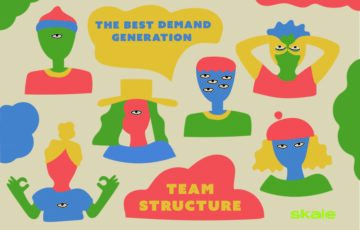
The Best Demand Generation Team Structure to Nurture Leads
So you know you need a demand generation team, now what? Read on for the people you'll need, their skillsets, and what you should be paying them.
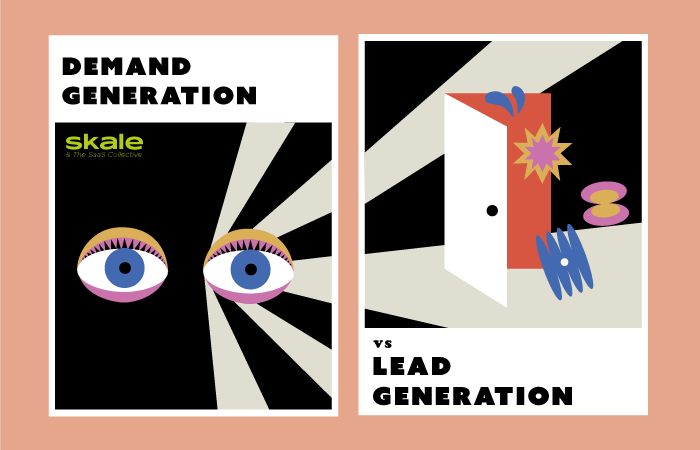
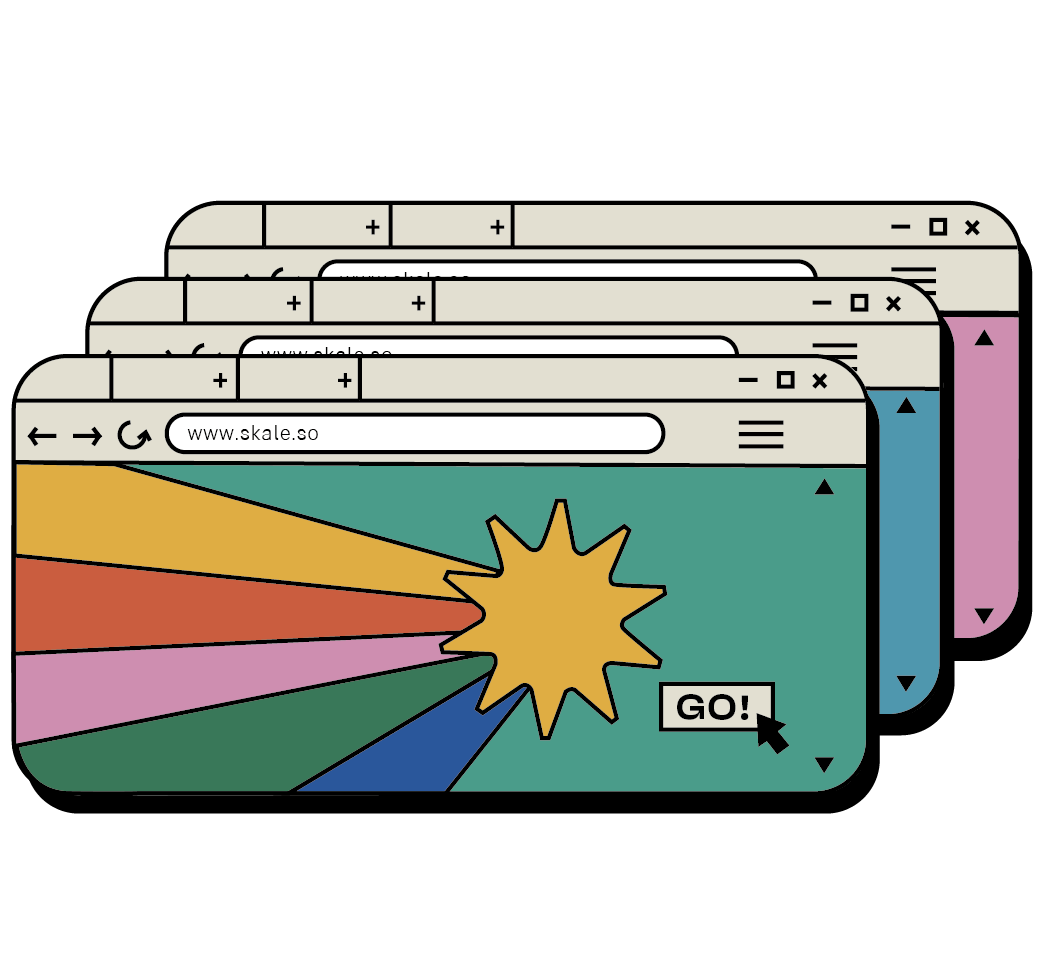
Increase your sales with PQLs
Let the team of experts create a winning product-led growth strategy for you
Schedule a callIt’s time we set things straight and finally unpick demand generation vs. lead generation. This article will lay out exactly what the difference is between the two. Plus, we’ll dive into some of our favorite demand generation ideas and lead generation to consider in your own SaaS strategy.
For this article, we called in a few of our experts from the SaaS collective.
Let’s kick things off by clearing up exactly what lead generation and demand generation are, as well as the difference between them
Demand generation, or demand gen as it’s often shortened to, is a strategy to increase popularity and demand for your product or service. A common KPI of a successful demand generation strategy is an increase in website visitors.
Demand generation builds interest in your product and trust in your brand. We’ll explore a few ideas on how you can create a successful demand generation strategy later in this article.
For example, we’re in-tune with the best practices for demand generation here at Skale. Ideal clients for Skale already know the importance of SaaS SEO and are looking for expert help to take their SaaS SEO strategy to the next level.
These ICPs are searching for long-tail keywords that are hyper-relevant to SEO-related growth. Let’s take ‘SaaS SEO Metrics’ as an example in this case. In the Skale SaaS marketing magazine, we’ve built a piece of demand generation content aimed at this long-tail keyword.
In a matter of months, this piece ranked on the first page of Google for the term and, at the time of writing this article (July 2021), sits at position number five. It’s telling Google we’re an industry leader on the topic.
Directly underneath this piece, we have another article ranking: ‘15 Secret SaaS SEO tools.’ Although we did not intentionally aim to rank this secondary piece under this search term, it’s done so organically, which is fantastic!
Update from March 2023: the article on SaaS SEO metrics is now holding the first position for its head term.
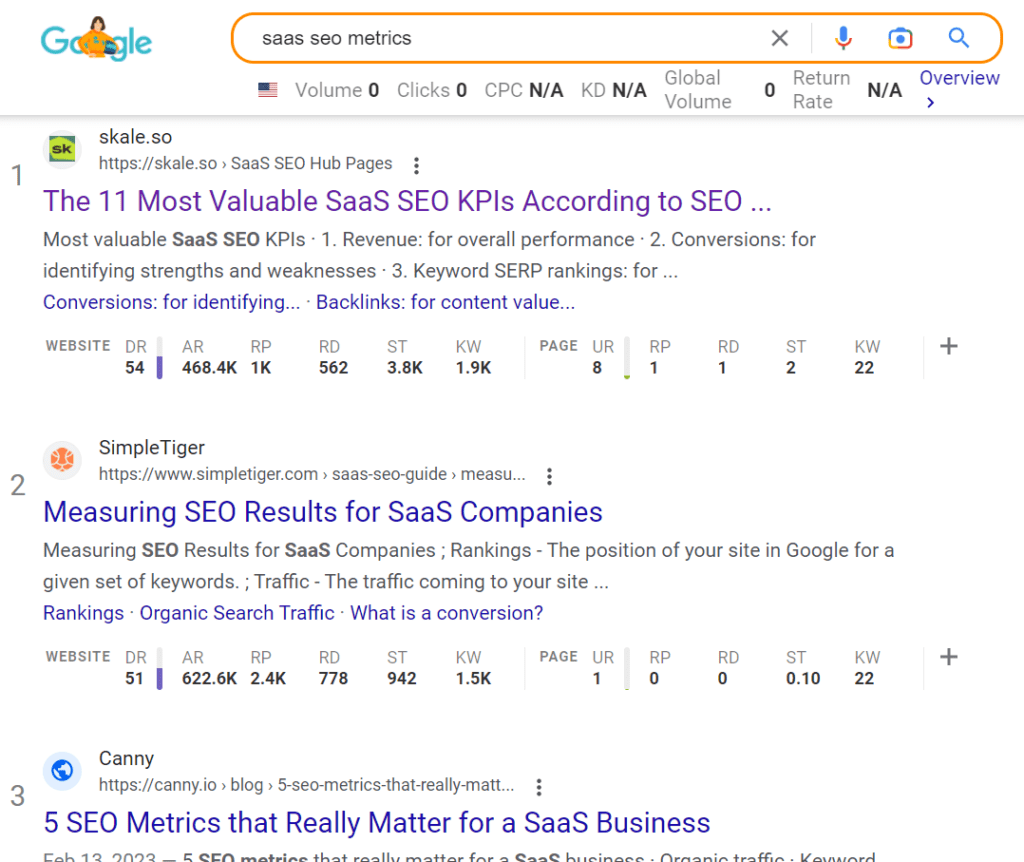
This is a great example of demand generation process, as we’re building demand and trust for our SEO services around keywords—and therefore audiences—that are likely to need them.
“Demand generation is still top of the funnel, but the success measures are usually marketing sourced pipeline and revenue. Although there is still a lead hand-off to sales, a demand gen team has a vested interest in what happens after that point.
As well as marketing channels, your relationship with the sales team and all lead management processes greatly influence your ability to hit your demand generation metrics.
Demand generation also puts a greater emphasis on lead quality. Lead generation is a volume game—put more at the top of the funnel to get what you need out of the bottom. Demand gen principles flip that, so you only hand over higher intent leads to sales teams that are ready to buy because those are the people that actually convert to new customers.”
Andy Davis, Director of Demand Generation @ Attest
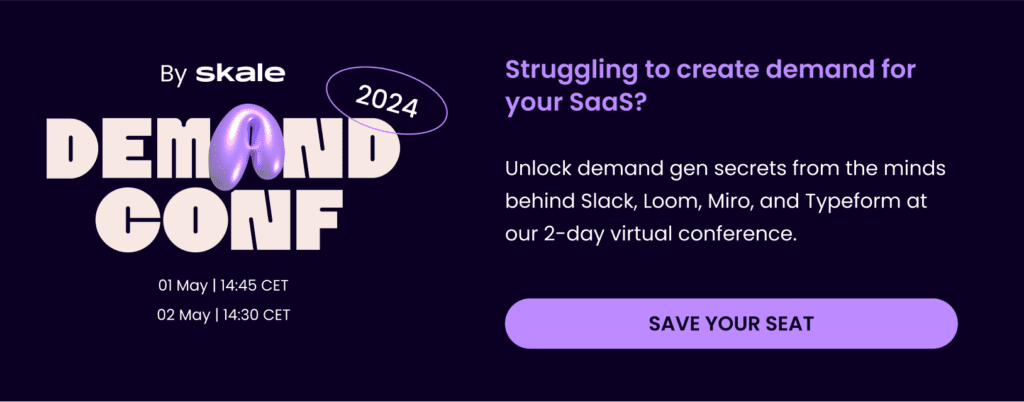
Lead generation is the next step to demand generation. You cannot expect to win leads if there’s no market demand. In short, lead generation is creating opportunities with people who are ready to buy your SaaS product or service.
Lead generation processes tend to lean on strategies that highlight your product a lot more than your demand generation campaigns.
For example, a brand that does lead gen really well is Later.com. The team at Later, the social media marketing tool, has created content that’s a level deeper than demand and put their product at the center of it all.
Pay special attention to the areas we’ve highlighted in green above. They:
“Lead gen is typically a very top of funnel activity, with MQL as a success measure. The goal is to generate ICP leads to be followed up by a sales team, often through tactics like content downloads, webinars, etc. Once the lead is generated and handed over, the success metric is largely complete.”
Andy Davis, Director of Demand Generation @ Attest
Demand generation comes first. It builds trust and awareness for your product and brand. Lead generation is a result of demand gen. It readies someone to buy your product. Both typically focus on various forms of content strategies to hit goals—however, this is not always the case.
Demand generation focuses on the problem. Lead generation focuses on the solution. Both focus on the customer.
“What’s important to note is that neither of these are “quick fixes.” For both, you need to be consistent in execution as well as consistent in your focus on the end-user (or lead) and their experience with your company, your content, and with your product.”
Eden Bidani, Conversion Copywriter @ Conversion Copy
A great place to start your demand generation efforts is on social media. When you keep your SaaS brand at the top of newsfeeds, you keep it at the top of minds. Develop a social media strategy that appeals to your ICP, and curate it for each demand gen channels.
A full social media strategy should look something like this:
“For Demand Gen, I’ve found regularly publishing useful, insightful, and educational content on social media platforms (such as LinkedIn) is a great place to spread brand awareness and raise a company’s profile in the eyes of their audience. When you consistently show up and deliver value, you create endless opportunities for your business.”
Eden Bidani, Conversion Copywriter @ Conversion Copy
“The most successful approach I’ve found for demand gen is to understand which channels our target audience uses and, most importantly, why they go there.
For example, very few people use LinkedIn to download pdfs. It’s not their primary motivation for opening the app. They go there to network and learn. The lesson there for demand generation efforts is to use the channel in the way that your target audience does by sharing useful and educational content that’s consumable on the platform.”
Andy Davis, Director of Demand Generation @ Attest
You can technically build your authority with quality content and search engines—we know a thing or two about that. At the same time, you can emotionally build your authority among your ICPs.
While the two come hand in hand, the technical side of things needs a great deal of SEO knowledge (and maybe some help from a few demand generation tools) if you hope to give your content the best chance of ranking—no matter how informative it is.
An example of a brand that did both of these things exceptionally well is Typeform. Typeform ran an in-depth guest post blogging strategy for a long time. It helped build backlinks to their website and product pages and drive authority and demand for their business.
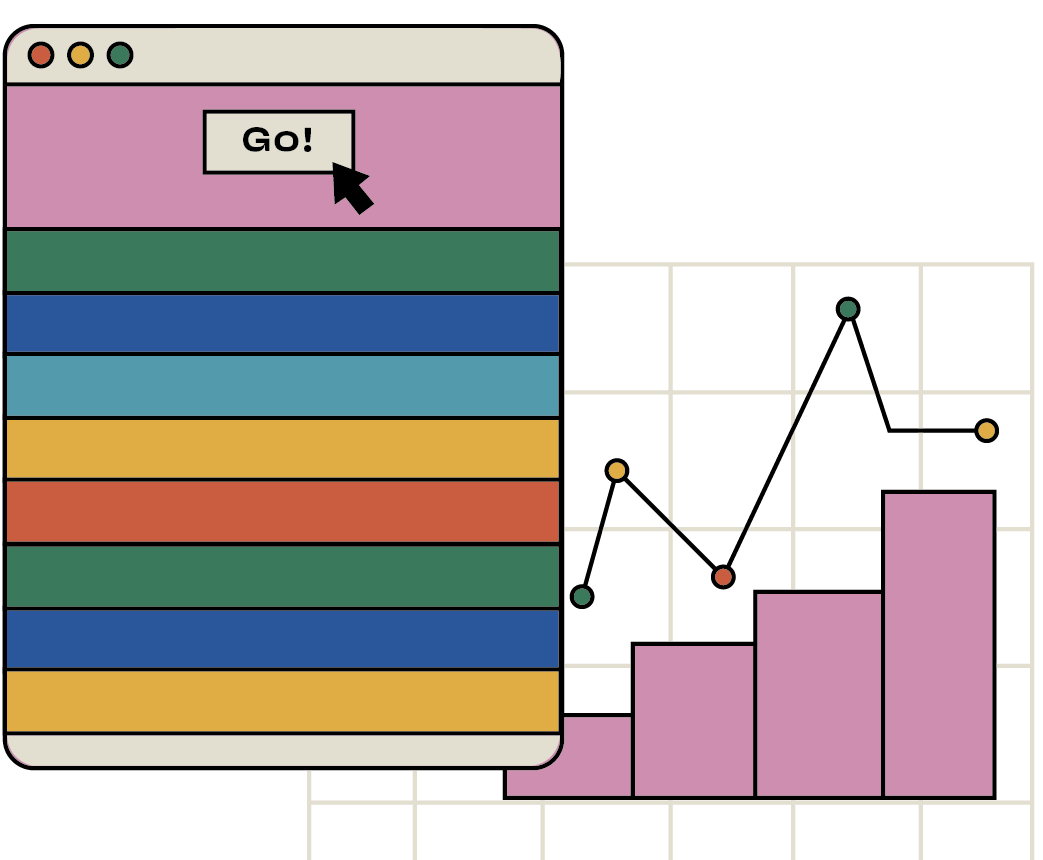
Build authority with quality content
Learn how Skale has helped Perkbox increase non-brand organic MQLs by 102%
Read hereEvent marketing has changed, and it’s not as it once was. Today, event marketing is digital marketing—it’s adopting new technology as quickly as the English weather changes. With the advancement of VR and AR, our digital events are here to stay, and they’re fantastic for demand gen!
Consider partnership up on events to get your brand and solution out there to new but relevant audiences.
One brand that does this well is Alaya Good, the positive impact platform for workplaces. Alaya frequently hosts webinars with industry experts to talk about topics that they need to hold conversations around.
By partnering up with industry influencers, Alaya can position themselves well and reach audiences that genuinely have an interest in their product. It’s a win-win for demand generation plan.
Now that’s demand gen strategies covered, let’s get into lead generation ideas for your SaaS strategy.
PS. Looking for the hottest events in SaaS? Find the hottest SaaS marketing events here.
When someone is ready to become a lead, they are ready to buy. This means that your business and digital marketing strategy has already done a lot of the work. Lead generation campaigns are that final push to knock them into a paying customer ‘bucket.’
“For lead gen, it always comes down to consistently improving on the user’s experience of interacting with your content (and your product). From optimizing landing pages and lead gen forms to making onboarding for a freemium or free trial of a product is super smooth.
The bottom line is to try and reduce as much friction as possible at key touchpoints, so the leads coming through have the right expectations in mind and are a better fit.”
Eden Bidani, Conversion Copywriter @ Conversion Copy
The ideas that Eden mentions here are really interesting. Eden talks about landing pages, lead generation forms, and onboarding for freemium trial versions of your SaaS product. Each of these avenues are essential to look at for your lead gen. However, her main point is that they’re each as smooth as can be.
When someone wants to become a lead, you don’t want to give them a reason to walk away. Good UX is critical in converting someone fast when they’re ready to convert.
Mailchimp is notorious for fast and friendly forms that convert leads with ease.
Their freemium signup form almost ‘gamifies’ creating a strong password with an interactive checklist, and the rest of the form covers the essentials needed to create an account. Everything else can wait for onboarding or later.
Email marketing is proving to be the most effective strategy for lead acquisition time and time again. You’re landing in someone’s inbox, someone’s personal space. If your demand gen has done a good job of building brand trust and knowledge, then you’ll win an email open.
From there, the rest is down to your lead generation efforts and creativity. How can you convert someone from being a passive shopper to an active buyer? Take a leaf out of Growth Mentor’s email strategy.
Growth Mentor Lead Gen Example
Email marketing for lead gen doesn’t need to be fancy. It needs to be relatable to the person whose inbox it lands in. Your lead gen emails need to be personal, a touch of humor sometimes helps, and your content needs to be relevant. If you execute well, you’ll see an increase in leads in no time at all.
Referral campaigns are a fantastic way of doubling your leads with minimal effort. Dropbox demonstrated the power of a good referral campaign years ago, and it’s a huge reason for their now-massive success. However, today a few brands are leading the charge for referral campaigns.
For example, Revolut pushes lead generation via word-of-mouth marketing. They provide customers with a unique link to a tailored landing page for their friends. They also give their customers text that they can copy and paste into messages to friends. It’s short, easy, and with a great incentive to share.
“Hey, managing your money would be so much easier if you had Revolut. Sign up with my link https://revolut.com/referral/raymoncelr”
Hopefully, some of these lead generation ideas have inspired some lead gen strategies for your own SaaS business.
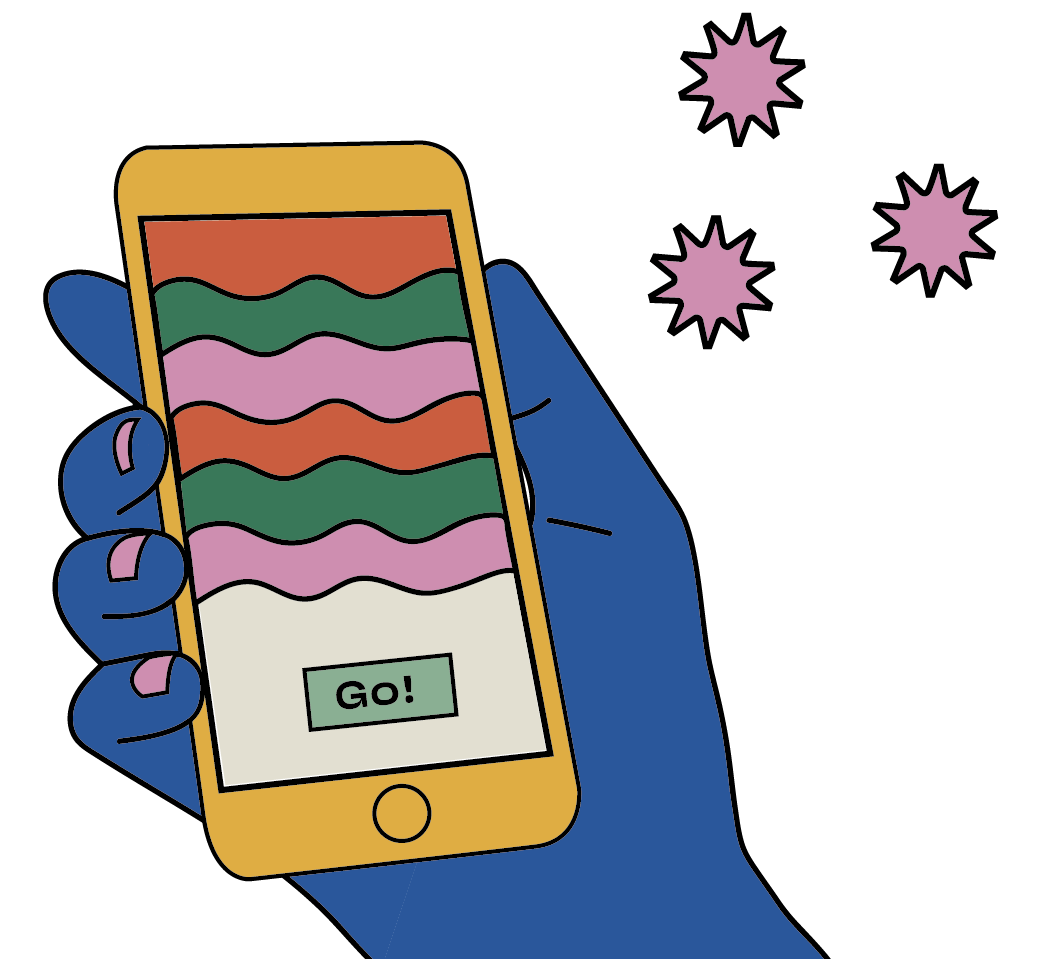
Take the guesswork out of your SaaS marketing
See how Skale can help fully manage your SEO channel and drive MQL growth
Schedule a callOne is not better than the other. At the same time, one cannot exist without the other. Lead generation and demand gen are both essential strategies if you want to increase product signups. They are essential steps in the customer journey and need an equal amount of attention.
Any new SaaS brand needs to focus on demand generation first before they focus on lead generation. If you jump directly to lead generation campaigns, then sure, you’ll be hitting vanity numbers of leads that look great on paper but will fail to convert.
Demand generation is the act of building interest and trust in your brand and product. Demand generation comes early on in a customer journey and uses a combination of content strategies to fulfill its KPI of driving people to your website.
Lead generation is the act of building a collection of people that are interested in paying for your SaaS product or service. Lead gen comes secondary to demand generation. SaaS businesses cannot expect to generate leads if they are not generating product demand first.
The main difference between lead gen and demand gen is where they come in the customer journey. Demand gen comes first, and lead gen follows from there. Demand generation typically focuses on a user’s problem, whereas lead generation typically focuses on a SaaS solution.
Learn more about
Demand Gen

The Best Demand Generation Team Structure to Nurture Leads
So you know you need a demand generation team, now what? Read on for the people you'll need, their skillsets, and what you should be paying them.
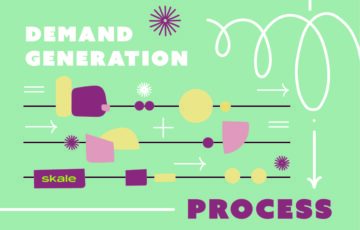
6 Elements to Include in your Demand Generation Process
Everything you need to know to build a stellar demand generation process, and a more profitable SaaS business.
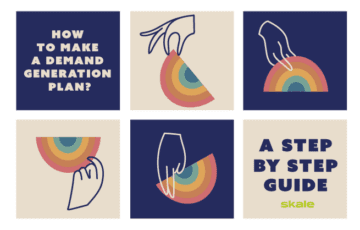
How to Craft a Winning Demand Generation Plan
Your eight-step guide to crafting a demand generation plan that helps your SaaS take flight.